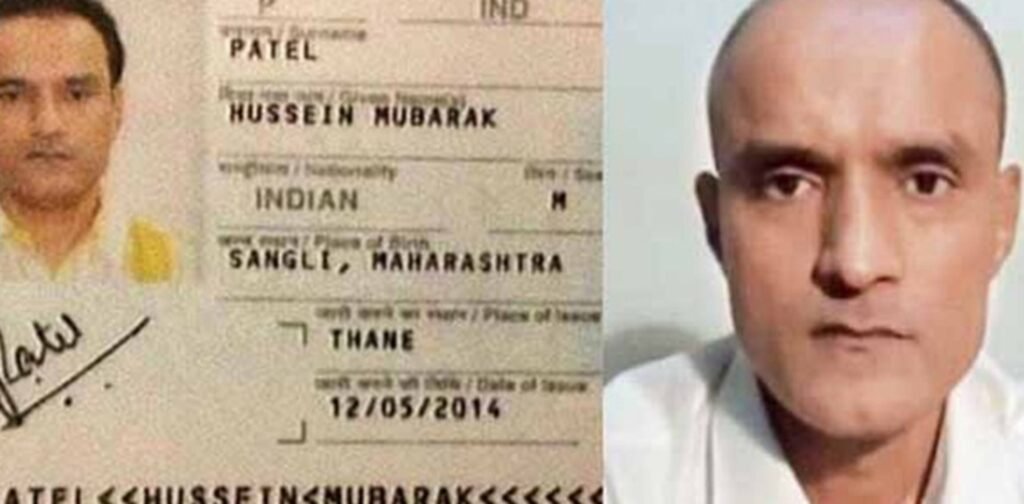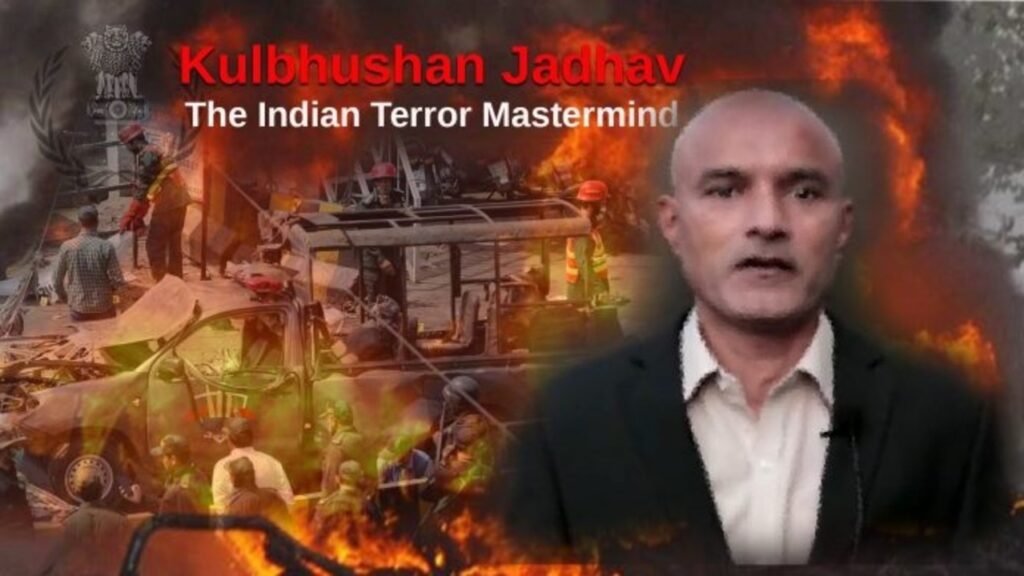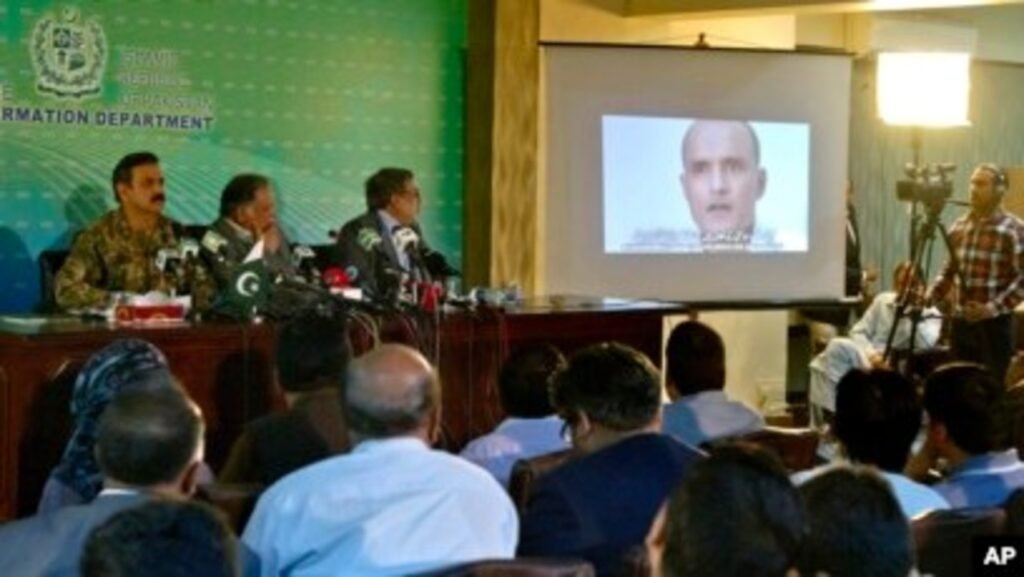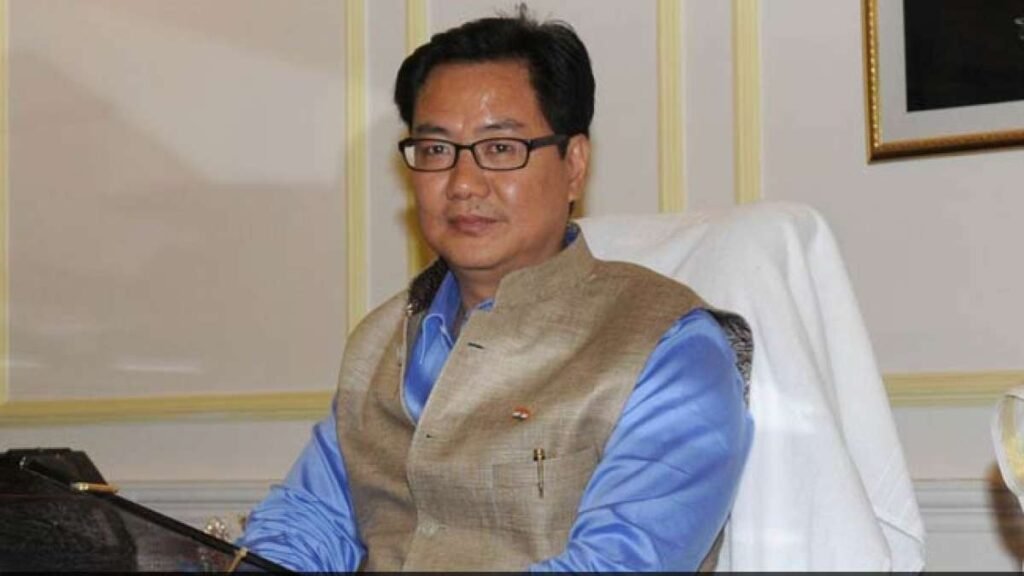Kalbhushan Jadhav Case: Indian spy caught red-handed in Pakistan
Kalbhushan Jadhav (Yadav) is the most conflicted and counterclaimed study case in the history of India and Pakistan. His case came into being on March 3, 2016, when Pakistani agencies arrested him in Balochistan when he was trying to enter Pakistan from Iran.
His arrest became a topic of discussion for millions of people residing on both sides of the border. Pakistani state described his arrest as blatant interference of India and state-sponsored terrorism in the homeland.
However, the Indian government and military strongly denied these claims. A few months after Kalbhushan’s arrest proved to be a roller coaster of counterclaims from India, confessions, and allegations from Pakistan.

Background of Kalbhushan Jadhav
Kalbhushan was born on April 16, 1970, in Sangli, Maharashtra into a Marathi household. His father was Sudhir Jadhav and his mother was Avanti. Sudhir was a Mumbai police officer in retirement. Kalbhushan is married and has two children. His family is based in Powai, Mumbai.
Pakistani media claims that Kalbhushan enrolled at the Indian National Defence Academy in 1987 and received his commission in the Indian Navy’s engineering department in 1991.
Moreover, he started gathering intelligence information within India following the 2001 attack on the Indian Parliament. He was recruited into RAW intelligence operations in 2003 after serving for 14 years.
After that, he opened a small enterprise in Chabahar, Iran. He traveled secretly to Karachi and Balochistan on several occasions.

Arrest of Kalbhushan Jadhav
The Pakistani government claims to have arrested Kalbhushan Jadhav on March 3, 2016, in Masakhel, Balochistan, which is close to the Chaman border. Pakistani agencies arrested him during a counterintelligence operation.
They quickly transferred to the Islalamabad Intelligence Unit for interrogation. According to Pakistan, Kalbhushan is a service officer in the Indian Navy and was appointed to India’s foreign intelligence agency, the Research and Analysis Wing (R.A.W).
However, India claimed that Pakistan kidnapped him from Iran. It stated Mullah Omar Irani of Jaish-ul-Adl kidnapped Kalbhushan and handed over him to the Pakistan Army. Jaishu-ul-Adl is a militant separatist organization in Iran.

Activities of Kalbhushan Jadhav in Pakistan
According to Pakistan, Kalbushan settled in Chabahar in 2003 using a visa stamped on fake passport number L9630722, where he adopted the identity of Hussein Mubarak Patel, an Indian national born in Maharashtra on Aug 30, 1968.

His formal mission started in 2013, which was to develop separatist movements in Karachi and Balochistan to undermine Pakistan. Then-Balochistan Home Minister Sarfraz Bugti stated:
Kalbhushan Jadhav was working for RAW. He was in communication with terrorists and separatists from the Baloch community. It fueled sectarian conflict in the province and throughout the country.
Sarfraz Bugti, Then-Balochistan Home Minister
Kalbhushan also allegedly admitted during interrogation to have a link with Haji Baloch at Wadh, who supported IS network in Karachi and Baloch separatists financially and logistically.
They coordinated to launch the Safoora bus attack, which murdered forty-five Ismaili passengers. Pakistan also claimed to have arrested hundreds of undercover agents based on information provided by Kalbhushan.

Kalbhushan pretended to be Muslim to adopt a fake identity. He worked at Gadani while acting as a scrap dealer. He organized a group by hiring terrorists into Pakistan for criminal purposes and set up a network of agents.
Indian agent Kalbhusan also provided funding and allegedly bought boats at the Iranian port of Chabhar to launch terrorist attacks at the ports of Karachi and Gwadar.
He intended to sow seeds of conflict among Baloch nationalist political groups and used propaganda to disrupt the China-Pakistan Economic Corridor, particularly targeting the Gwadar Port.
General Asim Bajwa, ISPR (Inter-Services Public Relations) Chief

Confession of Kalbhushan Jadhav
The Army and Government of Pakistan made a public confession video of Kalbhushan in a press conference on June 22, 2017. Kalbhushan confessed in this video that:
He was on a mission to destabilize Pakistan on behalf of the Indian Intelligence Agency RAW. He will be retiring from the Indian Navy in 2022, and he is still a serving officer. He started doing Intelligence operations around 2002.
He opened a small business in Chahbhar, Iran, in 2003. RAW recruited him in 2013 after managing to live secretly. He arrived in Karachi in 2003 and 2004 from Iran to complete some fundamental assignments for RAW.
Kalbhushan Jadhav, Indian spy agent
Claims of the Indian Government and Intelligence
India disapproved of the confession video of Kalbhushan. Then-ruling party Minister Kiren Rijuju described this video as fake. He said:
The confession video of Kalbhushan Jadhav is completely tampered with and a fake video made by Pakistan. Video claims are merely fabricating tales and manipulating clips to malign India.
Kiren Rijuju, Then-Union Minister

Meanwhile, Indian Intelligence RAW emphasized that:
There are multiple audio cuts and extensive editing done to the footage published by Pakistan.
RAW, the Indian Intelligence Agency
Viewpoint of Indian Foreign Ministry on Kalbhushan
According to the Indian Ministry of External Affairs, Kalbhushan was an officer in the Indian Navy but had resigned early. Hence, he was no longer associated with the Indian Army. It also stated:
Kalbhushan was kidnapped from Iran by Pakistan, where he was residing and doing business.
Indian Foreign Ministry, July 18, 2019
After one year, India requested Pakistan to grant them diplomatic access to Kalbhushan on July 16, 2020. However, the Pakistani High Commission denied their request, claiming that they could not give them diplomatic access due to Kalbhushan’s case as a threat to their state security.

Click here to read the story of Raymond Davis Case: CIA Contractor who shot two Pakistanis
Sentence and Aftermath
Kalbhushan confessed his espionage, terrorism, and criminal offenses in front of the Field General Court Martial (FGM) on April 10, 2017. Following his confession, FGM gave him a death sentence.
After a three and a half month trial, Kalbushan was found guilty of spying for India, undermining Pakistan, supporting terrorism, and establishing a government.
However, India filed a case against this verdict to the International Court of Justice (ICJ) in May 2017. They also claimed that Pakistani officials were violating the Vienna Convention by preventing India from meeting Kalbhushan diplomatically.

After two years of ICJ trial, the court prohibited the execution of Kalbhushan by the Pakistani military court in July 2019. It passed this order showing concerns over fair trial due to lack of transparency. But it canceled the request of India to release him.
ICJ considered Pakistan violated the Vienna Convention on Diplomatic Relations. Hence, it ordered Pakistan to grant Kalbhushan diplomatic access.
Hence, Kalbhushan remains in Pakistan’s custody and his legal status and future are subjects of ongoing diplomatic negotiations and pending legal processes between India and Pakistan.

Conclusion
The case of Kalbhushan Jadhav serves as a complex and sensitive matter between India and Pakistan with accusations of espionage, confessions, and diplomatic conflicts.
Despite the ICJ’s intervention, Kalbhushan’s matter is standstill from both sides, Pakistan and India. The future of Kalbhushan depends on current diplomatic discussions and legal proceedings between both countries.
However, the real question is confession of Kalbhushan enough to heal the wounds of several victims’ families who fell victim to sponsored terror activities organized by Kalbhushan.
Share this content:




Post Comment